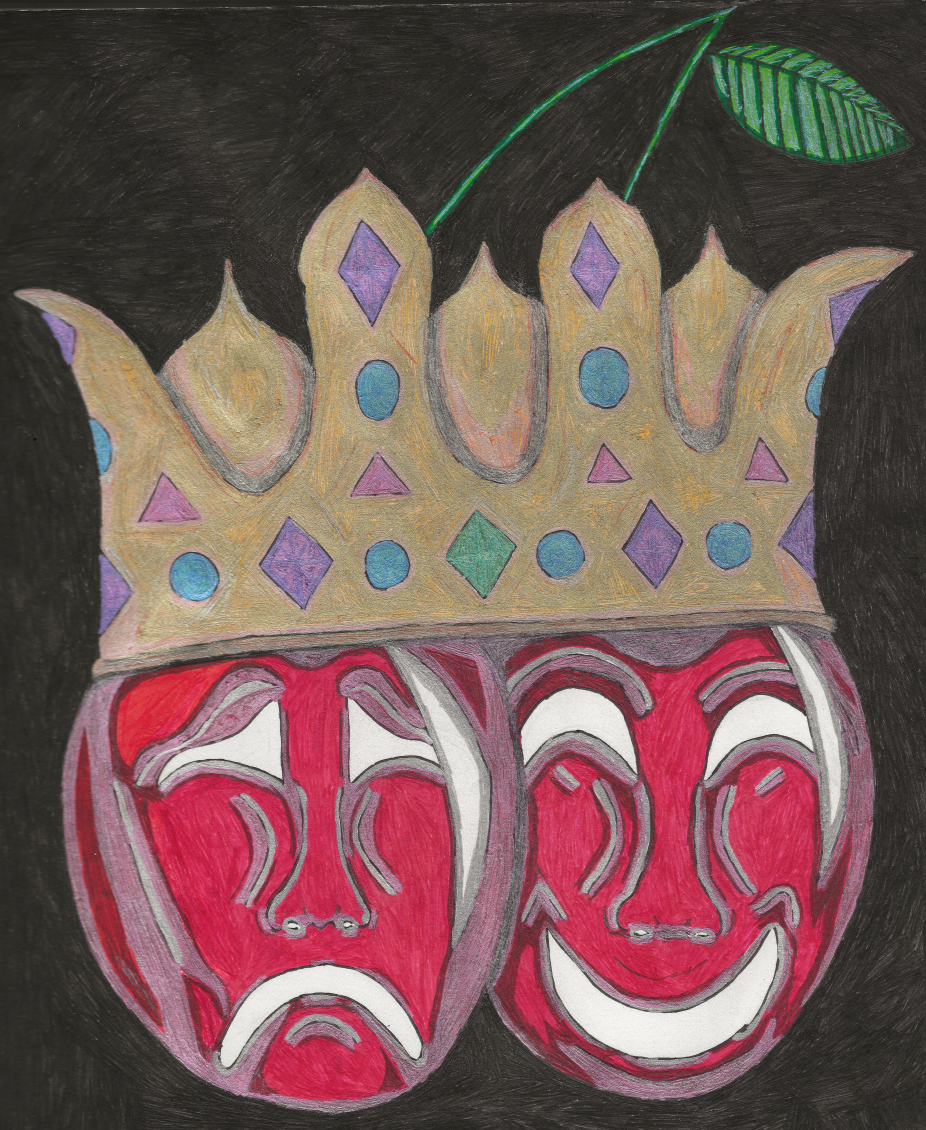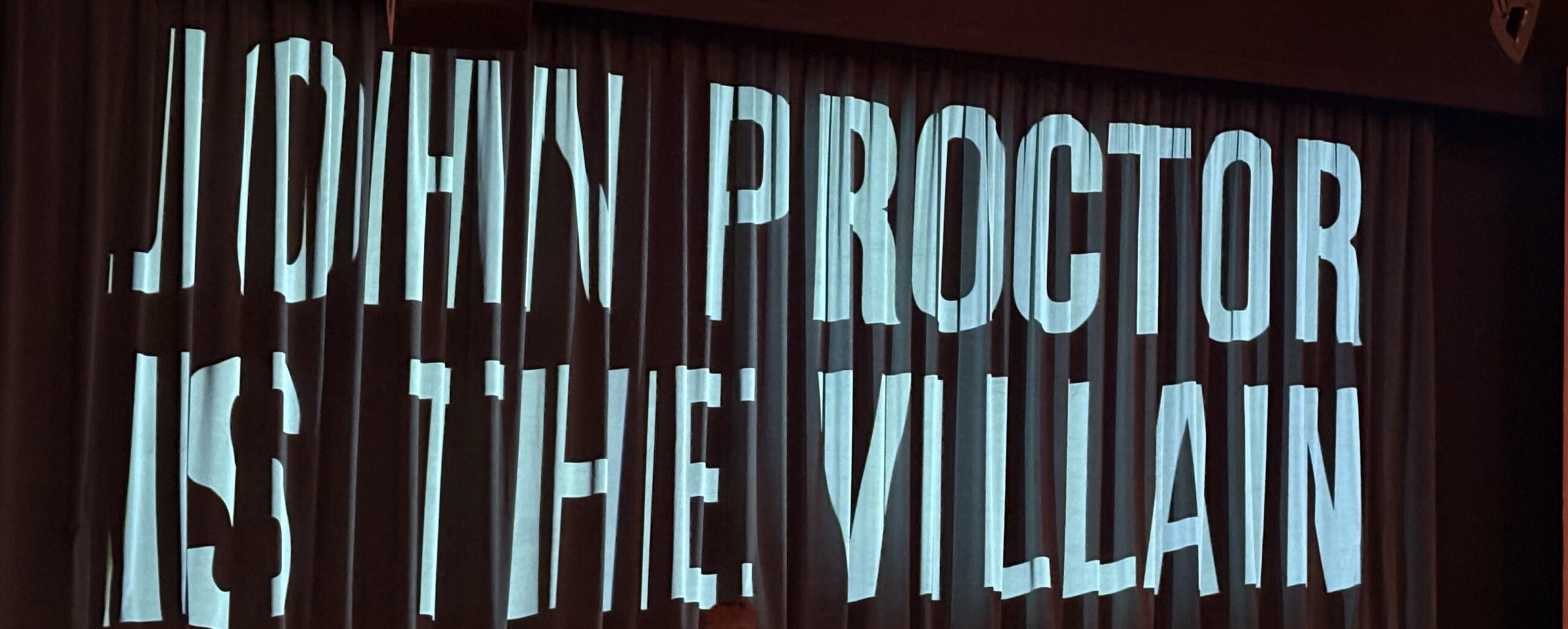30 August 2025
Matinee
John Proctor is the Villain isn’t just a show — it’s a lesson. And being a lesson, it is fitting that the show takes place in a high school located in a rural, small town in Georgia. It should be noted that the playwright (Kimberly Belflower — making her Broadway debut with this show — and what a debut it was!) is from a small town in Georgia, but more importantly is an educator herself. And her education background shows!
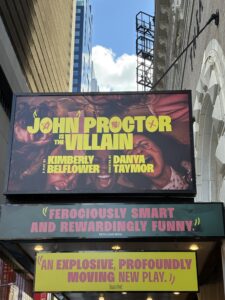
Booth Theatre
Many of us know the story of The Crucible and we were taught about how noble and heroic and honourable the character of John Proctor is… except realistically, he’s not. And this show exemplifies this not just by explaining it to the audience in the context of students learning about the play, but also within the characters themselves.
This show centres around a few main characters: Shelby — a girl with a reputation of being promiscuous who has been away for roughly six months and no one knows exactly why. Carter Smith — a teacher at the school that the students attend. Mason — a boy in the class. Raelynn — a girl dating the character of Lee and is the main character of this story. She is best friends with Shelby, who has had sex with Lee. Lee — Raelynn’s aggressive and sex hungry boyfriend. Ivy — a student whose father is accused of having an affair on her mother. Beth — an innocent student who is rather religious and very trusting who only wants to see the good in people. Nell — a new girl who moved to this small rural town from Atlanta, Georgia and is therefore meeting and learning about many of the characters at the same time as the audience (and therefore is able to provide an outsider’s perspective to the other characters). And Bailey Gallagher — she used to be a student at the very school that these characters attend and she now works there. It must be noted that she also knew Carter when she was a student.
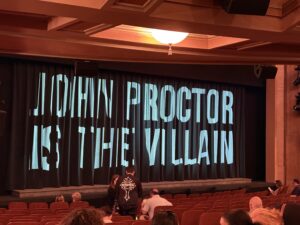
This show takes place in 2018, with an emphasis on seeing the world through the eyes of high school girls, who are learning about the world — a world where the “Me Too” movement has started and the society is beginning to listen to the victims. It deals with very intense themes including, but certainly not limited too, power dynamics in relationships/abusing that power dynamic, engaging in sexual acts with minors, the internal struggle that many people feel when someone they personally know and trust is accused of something heinous and how hard it can be to accept those accusations as true, blaming the victim, and unfortunately, the likely outcome in far too many cases.
The show opens with Carter Smith teaching a sex education lesson to the class. He is not a sex ed teacher, but rather he teaches literature. He has no choice but to teach sex ed due to budget cuts (a thing I am sure the playwright is very familiar with). The students are not particularly interested in the sex ed lesson — in part because they are old enough that they already know about sex and realistically should have been receiving this class for years. But also because in small town, rural Georgia sex education is not the most important thing and there is a heavy emphasis on abstinence only. Between the religious nature of many of the families in the town and being generally conservative on the political spectrum — anything that might be seen as even remotely controversial by the parents in the school district is a challenge for this school to actually do. And that means comprehensive sex education is just not a thing.
But the students know better. Or at least, as the play progresses, the students learn better. And for an extra bonus — this show is very aware of the pop culture during the show’s time frame including quoting Taylor Swift and giving the audience (and the character of Nell) a recap of past events ending with the phrase, “And that’s what you missed on Glee”.
John Proctor is the Villain does a wonderful job of paralleling the actual play of The Crucible with the students (especially the female students), the teachers, and even the parents in the town that are never actually seen on stage. Once the opening scene of the sex ed class ends, the teacher — Carter Smith, begins to teach the class about The Crucible and explains how John Proctor is the hero. This sparks Shelby, you has just returned from being on a “sabbatical” for six months to disagree with Mr. Smith.
It is at this point that the show really takes off because for most of the audience — we have only ever known John Proctor as the hero. But Shelby points out numerous things: Abigail was John Proctor’s employee, she was a virgin with a crush on her boss, he never apologises to her, nor does he ever apologise to his wife, Elizabeth. In fact, John Proctor dies without ever even saying that he loves Elizabeth. Realistically, in the time period of The Crucible him dying damns his wife and his children to a life of poverty and hardship — and for what, really? To preserve his name. Just a name. Not a person, not the many lives he destroyed along the way, but the concept of a name. And honestly, I don’t know how many people in the audience had ever thought of John Proctor and The Crucible like that before.
John Proctor is the Villain also takes care explain some potential reasonings that the characters in The Crucible do things that we would think of as odd like dancing in the woods even though it is illegal and lying about why. And then we see our lead female characters reach their breaking points and just need to scream and yell and dance. And it puts it all into perspective.
Towards the beginning of the show, some of the female students decide that they would like to start a feminism club as an extracurricular activity at the school. However, this is denied because it would be too controversial for the town. This is when Mr. Smith steps in and offers to be the faculty advisor for the club and even offers to frame the club with works of literature so that it wouldn’t be seen as just as feminist club and therefore would be acceptable for the parents in the town.
In order to delve into this show further — I need to put a SPOILER WARNING:
The character of Shelby (played by Chiara Aurelia) is a very intricate one. Shelby has a promiscuous reputation in part because she had sex with Lee (played by Noah Pacht in this performance) who is Raelynn’s (played by Amalia Yoo) boyfriend. This, of course, causes tension and awkwardness between the characters of Shelby and Raelynn. However, with the help of Nell (played by Morgan Scott) Shelby and Raelynn are able to rekindle their friendship. A lot is revealed about Shelby — her reason for leaving, her past sexual partners, and why she even feels the need to be “promiscuous” (realistically, she is not a promiscuous character — she was groomed). It makes for a character that is by no means perfect, but also not at fault either. I imagine this is a difficult role to play — the actor has to be able to be liked enough for people to not instantly judge her character from the limited information we start with and then transform the character into essentially a hero.
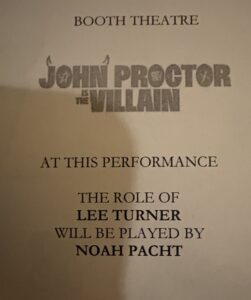
The character of Ivy Watkins was played by Maggie Kuntz and I found her performance fascinating. The character of Ivy has to be conflicted. There is a rumour going around town that Ivy’s father had sex with one of his employees — which means he cheated on Ivy’s mother and again, this town is very religious. This leaves the character of Ivy very confused and unsure what to do — should she be angry at her dad? Should she feel better that the cheating was supposedly consensual? Can she love her father and hate him at the same time? And worst, as the show moves on, the rumour begins that her dad also had sex with Shelby and that’s why Shelby was away for so long. The character has to learn the kind of man her dad really is and it’s heartbreaking to watch.
Bailey Gallagher is another conflicted character (played by Molly Griggs) because she grew up knowing Carter Smith the teacher. She trusted him as a kid, even developed a little crush on him, and now she works with him at the school. But Bailey had heard rumours about Carter before… and she always dismissed them because she knows Carter and he’s a good guy. Which makes it even more important and powerful when she finally realises that’s she’s been dismissing the wrong people.
Perhaps the most interesting character, in my opinion at least, is that of the teacher — Mr. Carter Smith. Carter is played by Gabriel Ebert (who was absolutely amazing). What makes this character so difficult to play, I think, is that he isn’t a straight forward character. The audience and many of the characters believe he is, but he has dark secrets that are not revealed until we are well into the show. These secrets have to come as a surprise to the audience in order for the message of this show to be loud and clear — so when the audience gasped when everything came to light — I was thrilled.
The character of Carter starts off as incredibly likeable, charming, progressive even for someone in Georgia. He’s for feminism, he wants to help… but does he? Carter is the John Proctor of the show and the fact that it takes the audience by such surprise is beautiful. It is revealed that Carter has a habit of not only cheating on his wife, but doing so with girls that are not only minors, but who are less powerful than him. Often, he goes after his own students to groom them. And as this becomes evident throughout the show, the audience has to turn on Carter. We have to hate him. And there is just something so amazing about watching a likeable character becoming so detestable by the shows end. It takes a special kind of acting ability to sway an entire audience’s perspective eight times per week.
I was able to ask Gabriel Ebert after the show, how it felt to play someone who has to become so hated by the time the curtain falls. He simply smiled and stated, “it’s necessary”. And he’s absolutely correct.
Once it is revealed that Carter had seduced Shelby (and that she was not his first victim nor will likely be his last), the audience gets to learn the fates of Carter, Shelby, and Raelynn (among others, but these are the most important). Carter is forced to take a short leave of absence. He is allowed back into the classroom to teach. Shelby is forced to take classes from another teacher. The town, as a whole, the school, as a whole — does not believe Shelby (even if many of the characters do by the shows end). In fact, Shelby gets punished as if she were the problem.
And finally, the show ends by cutting to black at a pivotal moment — the character of Beth (played by Fina Strazza) has a decision to make. Beth is a very conflicted character who very much trusts Carter. She doesn’t want to see the bad in Carter. But she is also likely to be Carter’s next (at least attempted) victim. Throughout the entire show she cannot wrap her mind around the idea that someone she trusts so much could be a bad person. At the show’s end, most of the students have come around to believe Shelby and take a stand against Carter — even Bailey. But Beth, right at the end, runs towards center stage before the lights cut to black. It must be stated that it is very much up to interpretation if Beth has run to join Raelynn and Shelby and the other students against Carter… or if she was rushing to stand by Carter’s side. I like to think she joined the other students. But I cannot say for certain.
I really wish this show was running longer because it is an excellent work of theatre that is really able to flip a very well known play on its head and make it relevant for a modern audience.
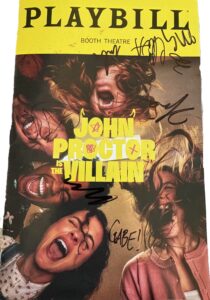
Very well done.
